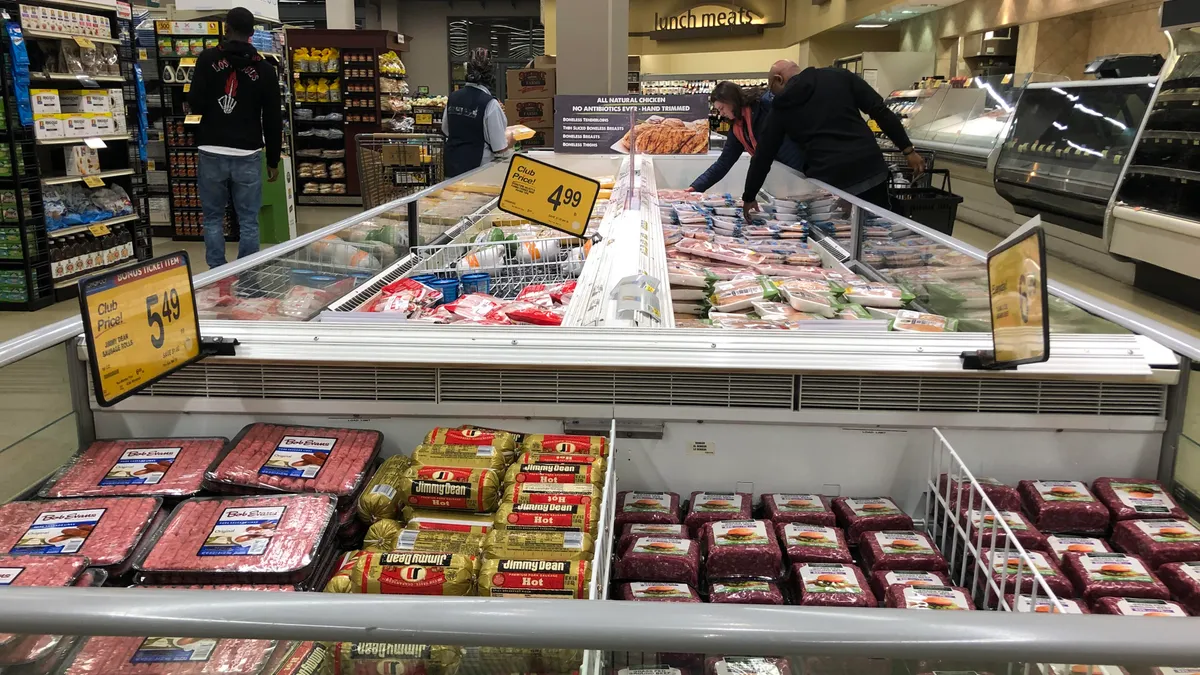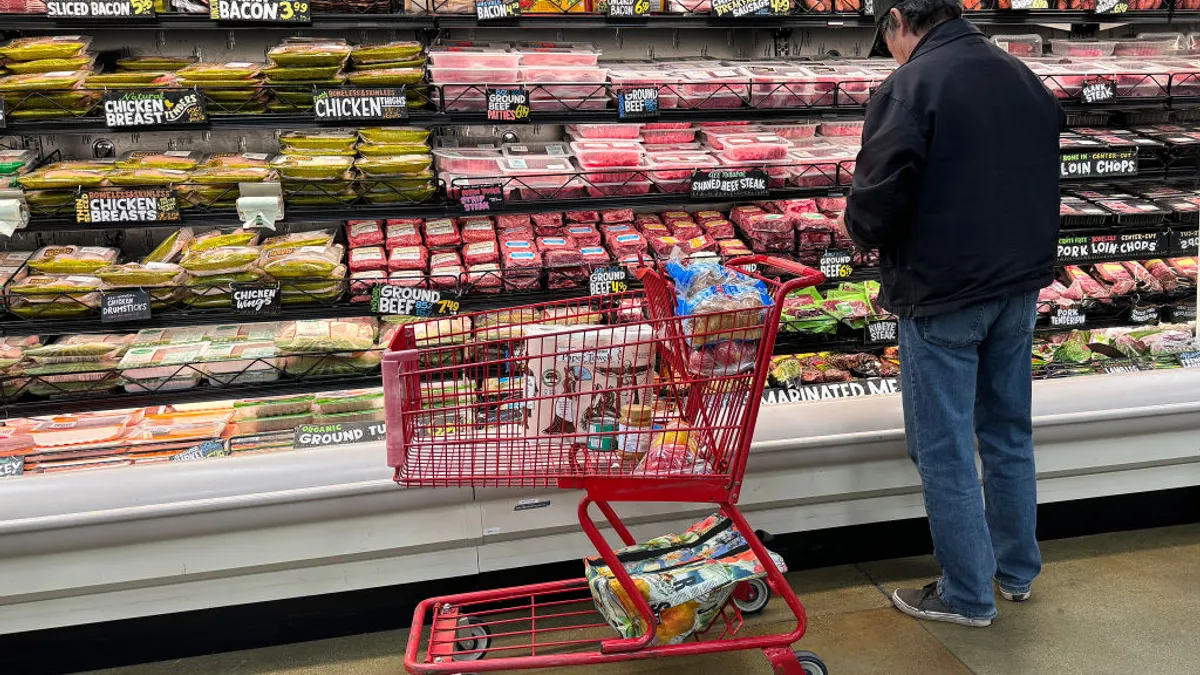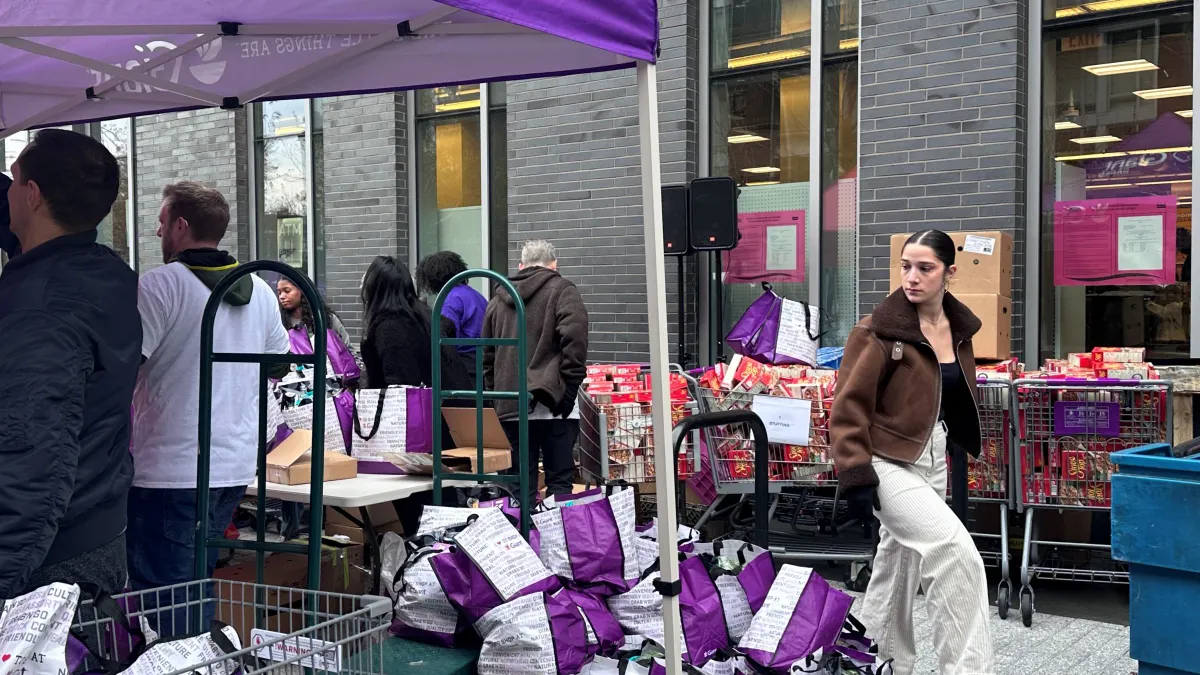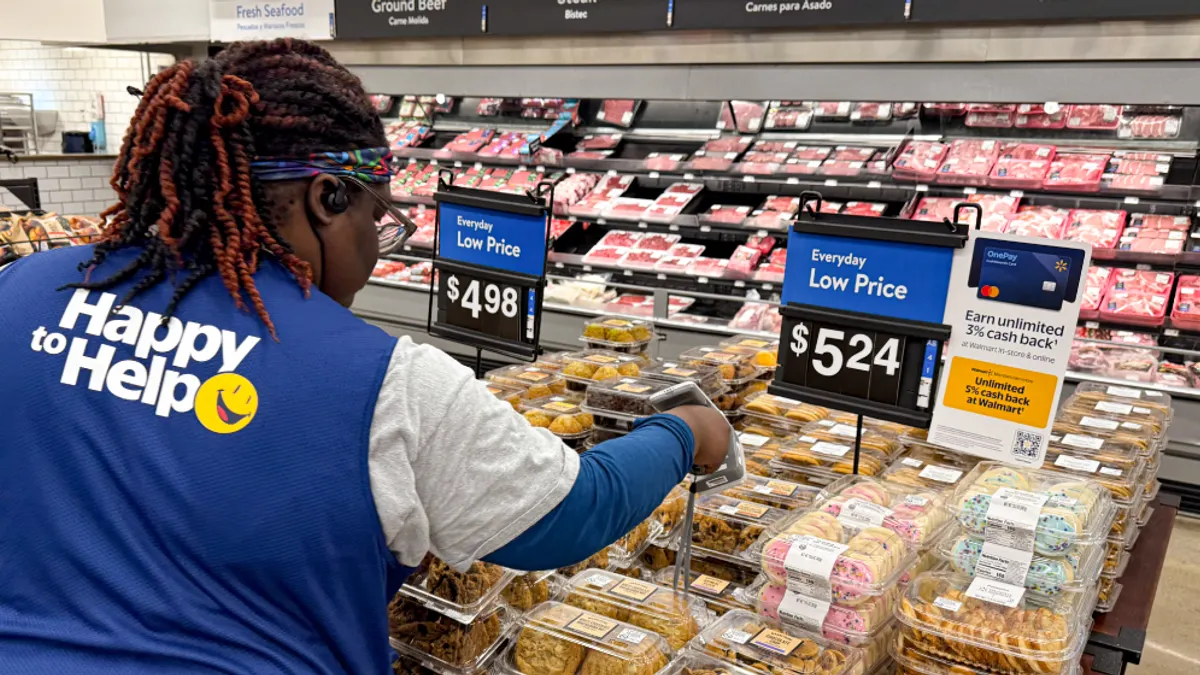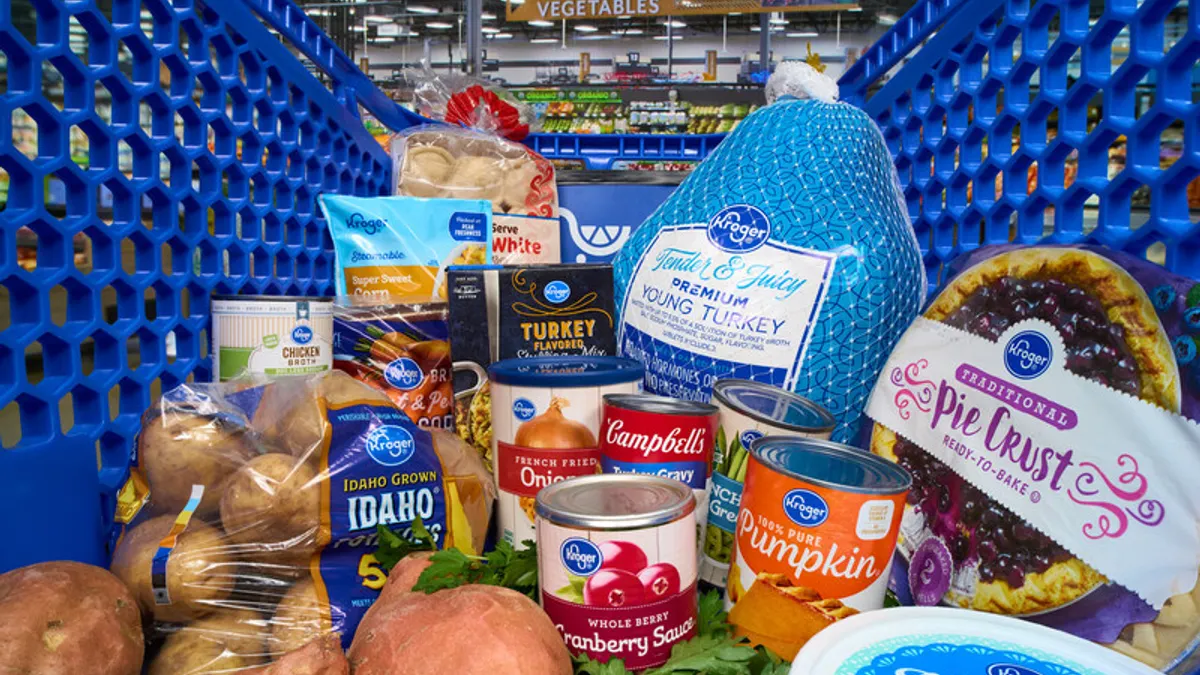Food retailers have gotten creative to keep their meat departments stocked as the pandemic impacts the nation’s beef, pork and poultry producers and stokes fear of shortages among consumers.
Grocers are expanding their relationships with meat producers, buying from food suppliers they might not have approached in the past, and taking other measures to counter the supply chain disruptions being caused as workers at processing facilities test positive for COVID-19.
Bob LaBonne Jr., president and CEO of LaBonne’s Markets, a four-store grocery chain in Connecticut, jumped into action at the first reports that workers at meat processing facilities were coming down with COVID-19. “I was really paying attention to the news, and as soon as I heard that Smithfield [Foods] had closed down I thought, ‘Uh-oh, it’s not going to be just them,” he said, referring to the meat processor’s April announcement that it was halting production at one of its plants because of the virus.
LaBonne quickly rented a 40-foot refrigerated trailer, then called meat vendors and said he’d take whatever they could provide as long as it met his quality requirements, even if it wasn’t his top choice. LaBonne filled the trailer with $150,000 worth of beef, chicken and pork to ensure a steady supply of meat for his 30,000 regular customers for as long as possible.
LaBonne realized that he needed to be flexible to avoid having his meat cases go empty even as he remained uncompromising on core standards. He told suppliers he’d take cuts of meat that were the wrong size or were otherwise imperfect, but drew the line at products he won’t sell, like frozen pork or bull meat.
Like many chain grocers, Hy-Vee has implemented limits on the number of meat and poultry products shoppers can buy in order to keep supplies from running out — in this case, four packages. But the company, which operates more than 240 supermarkets across eight Midwestern states, has also empowered its meat department employees to work with shoppers constrained by those purchase limits, according to spokesperson Christina Gayman.
Supply permitting, and upon request, butchers will put products that wouldn't ordinarily go together in the same container to help customers get the variety they want, said Gayman, who added that the grocer expects meat supplies to improve in the coming weeks.
As meat department managers scramble to maintain supplies, the ties many have nurtured over time with local and specialty providers in an effort to differentiate their offerings are now paying off in unexpected ways.
Kings Food Markets, a 25-store supermarket chain that mostly operates in New Jersey, has been able to avoid having to impose purchase limits on meat or poultry in part because it has been shifting toward local, natural and organic producers, Paul Greenblatt, the company's director of meat and poultry, told Grocery Dive. He estimated the company has transitioned between 20% and 25% of its total assortment from commodity selections to local, natural and organic products over the past two years.
“If we weren’t working over the last two or three years to bring these programs to market and establish them, we would probably be seeing much heavier shortages than we’ve experienced," Greenblatt said. "Our partners for local pork and local beef have helped to keep our shelves full.”
Kings still experienced product shortages beginning in March, when stock-up shopping swept across his stores, and has worked in new suppliers in response. To cover poultry shortages, Greenblatt forged relationships with new vendors like Cooks Venture in Arkansas and Springer Mountain Farms in Georgia. To beef up beef supply, he linked up with 44 farms in Texas that collectively supply between 50 and 100 whole animals to the chain each week.
Greenblatt also bought from foodservice companies that are looking for new businesses because their traditional restaurant customers have been sidelined by the virus.
“Getting all the secondary suppliers and new relationships established was one of the biggest challenges when this began because the food industry went upside down,” Greenblatt told Grocery Dive.
Kings is currently experiencing shortages in some products like USDA Choice and USDA Prime beef as well as branded meat products like vendor-packed sausages and pre-cooked baby back or spare ribs.
Raley’s, a supermarket chain that operates in California and Nevada, has also been able to largely keep its meat department humming despite the challenges facing the meat processing industry. One reason is that the grocer has ties with suppliers that have been only minimally impacted by coronavirus cases, Chelsea Minor, the company’s director of public affairs, said in an interview. Raley's uses suppliers including chicken producer Foster Farms and Harris Ranch, which provides beef products.
“Our partners have been very proactive in communicating their policies and procedures with us and giving us real-time updates as it relates to supply chain issues. We know what's coming through the pipeline,” Minor said.
Convincing customers not to buy more than they need out of fear that meat supplies will run out is also key, she added.
“We've actually felt confident about the meat supply as long as customers continue to normalize their buying patterns,” Minor said. “I just did a big press conference with a bunch of California ranchers last week, so that you could hear from both the suppliers and the retailers to say, you know, ‘There's plenty of protein within the supply chain. Please just make sure that you're buying for your week and not your three to four weeks.’”
In addition to urging customers not to overbuy, Raley’s has been reminding shoppers to expect more variations than normal when they select meat products. “One of the unintended consequences of not having enough people within these processing plants to work is that they're having to process things much faster,” which could mean, for example, that products that are normally bone-free come with bones, Minor said.
Customers also should expect price fluctuations as grocers and producers grapple with strong consumer demand even as the nation’s meat supply remains under pressure, Minor added.
Retail sources interviewed by Grocery Dive confirmed they've had to raise prices to cover higher costs from suppliers. At least some of those suppliers may give retailers a break in the weeks ahead, however. Tyson said it plans to lower prices for roasts, ground beef and other products by as much as 20% to 30% for grocers, restaurants and other retailers this week.
Jeff Wells and Krishna Thakker contributed reporting to this story.


